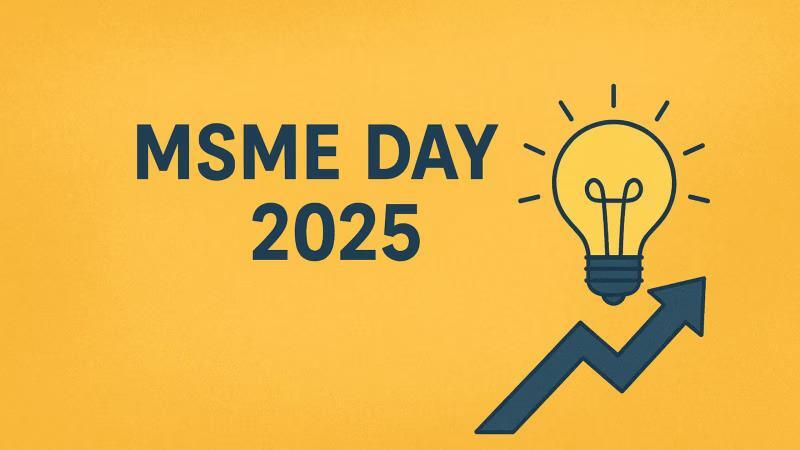
UN MSME Day 2025: Digital, Green & Inclusive Growth
On July 3, 2025, New Delhi hosted the prestigious UN World MSME Day, bringing together over 300 global leaders to champion the cause of Micro, Small, and Medium-sized Enterprises (MSMEs). The summit, themed “Empowering MSMEs for a Sustainable and Digital Future,” delved into the pressing issues of digitalization, green innovation, women-led enterprises, and global trade, showcasing India’s leadership and emphasizing tech-driven, inclusive, and sustainable pathways for MSMEs worldwide.
The event was a testament to the growing recognition of MSMEs as the backbone of the global economy. These enterprises play a crucial role in job creation, innovation, and regional development, accounting for up to 70% of employment and 50% of GDP in many countries. However, they often face significant challenges, including limited access to finance, technology, and markets, which hinder their growth and competitiveness.
In this context, the UN World MSME Day 2025 provided a unique platform for stakeholders to come together and share best practices, success stories, and innovative solutions to address the needs of MSMEs. The summit was attended by policymakers, industry leaders, entrepreneurs, and experts from around the world, who engaged in lively discussions, panel debates, and networking sessions.
Digitalization: The Key to Unlocking MSME Potential
Digitalization was a recurring theme throughout the summit, with speakers emphasizing its potential to transform the MSME sector. India, in particular, has been at the forefront of digital innovation, with the government’s initiatives such as the Digital India program and the recently launched National Digital Communications Policy (2025) aimed at promoting digital adoption and infrastructure development.
Speakers highlighted the need for MSMEs to leverage digital technologies, such as artificial intelligence, blockchain, and the Internet of Things (IoT), to improve their operational efficiency, reduce costs, and increase market reach. They also stressed the importance of digital literacy and training programs to equip MSME owners and employees with the skills needed to navigate the digital landscape.
Green Innovation: The Future of Sustainable Growth
The summit also focused on green innovation as a critical component of MSME growth and sustainability. With the global community committed to achieving the Sustainable Development Goals (SDGs) and addressing the climate crisis, MSMEs are increasingly recognizing the need to adopt environmentally friendly practices and technologies.
Speakers showcased innovative solutions and best practices in green technology, sustainable manufacturing, and circular economy, highlighting the opportunities and challenges faced by MSMEs in this area. Indian companies, such as Tata Steel and Mahindra & Mahindra, shared their experiences in reducing carbon footprint and adopting sustainable practices, providing valuable insights for MSMEs worldwide.
Women-Led Enterprises: The Power of Inclusion
The summit also highlighted the critical role of women-led enterprises in driving economic growth and development. According to the International Labor Organization (ILO), women entrepreneurs face significant barriers, including limited access to finance, markets, and networks, which hinder their ability to start and grow their businesses.
Speakers emphasized the importance of creating an enabling environment for women-led enterprises, with initiatives such as mentorship programs, training and capacity-building, and access to finance and markets. The Indian government’s initiatives, such as the Startup India program and the MSME Ministry’s schemes for women entrepreneurs, were lauded as models for other countries to follow.
Global Trade: The Key to Unlocking MSME Growth
The summit also explored the importance of global trade in unlocking MSME growth and competitiveness. Speakers highlighted the need for MSMEs to access new markets, build global supply chains, and negotiate favorable trade agreements.
India’s experience in promoting trade and commerce through initiatives such as the Asia-Pacific Trade Agreement (APTA) and the Regional Comprehensive Economic Partnership (RCEP) was showcased, with speakers emphasizing the potential for MSMEs to benefit from these agreements.
Conclusion
The UN World MSME Day 2025 was a resounding success, bringing together global leaders and stakeholders to champion the cause of MSMEs. The summit’s focus on digitalization, green innovation, women-led enterprises, and global trade provided a comprehensive framework for MSMEs to thrive in a rapidly changing world.
As we move forward, it is essential to build on the momentum generated by this event, fostering a supportive ecosystem that enables MSMEs to grow, innovate, and compete effectively. By doing so, we can unlock the full potential of MSMEs, driving sustainable and inclusive growth for the benefit of all.






